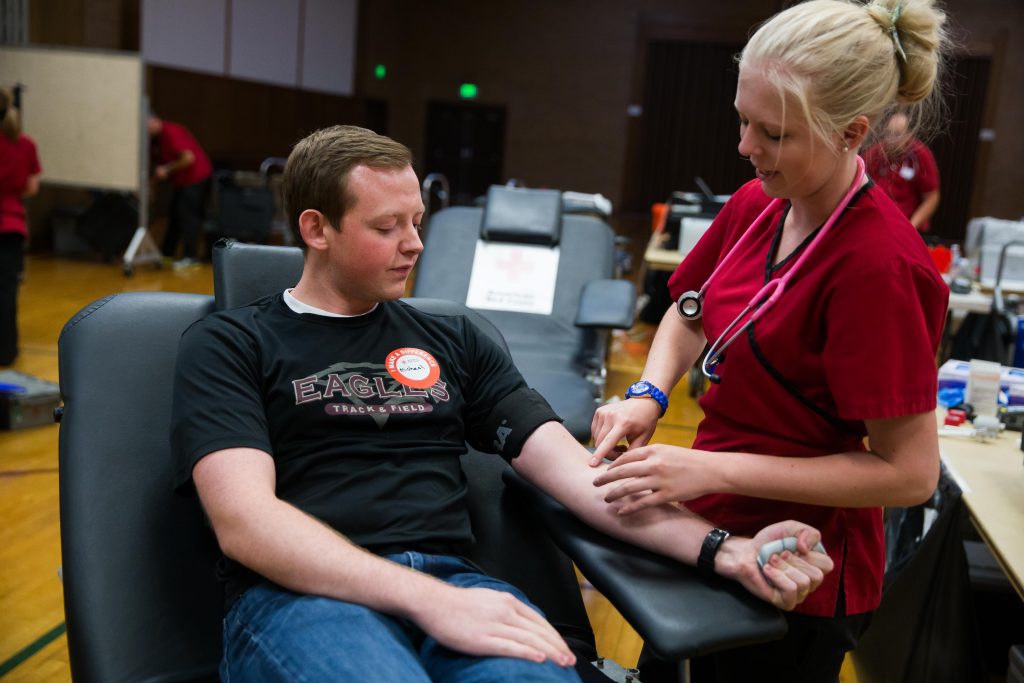
People have the opportunity to help safe a life and honor the victims of the Sept. 11 terrorist attacks by donating blood at local Red Cross locations.
“9/11 day is the largest annual day of charitable engagement in the United States,” said Utah spokeswoman for Red Cross Tammy Nakamura. “It’s a great way to encourage people to perform good deeds so that they can … recognize the heroes from that day and then also to recognize those who were victims.”
According to Nakamura, about 14,000 units of blood need to be collected everyday to ship to 2,600 hospitals across the United States.
“It’s a very unselfish thing to give blood, and then to know that it’s going to help somebody,” Nakamura said. “It’s really just a lovely way of showing support for other people.”
Blood donations are used for people in surgery, individuals fighting cancer, those who have sickle cell anemia and patients with other diseases.
“9/11 really brought us together as a nation,” BYU student and Red Cross employee Annie Jardine said. “(Donating blood) will help remember 9/11, and help each other out.”
Blood’s shelf life only being 42 days and 3 days for platelets, which is why the Red Cross continuously asks people to donate according to Nakamura.
“Blood has to be used so quickly after that they always need it, and there are people who are always in need of clean blood … they could save someone’s life by taking an hour out of their day,” BYU mechanical engineer student Tom Naylor said. “If people really understood the magnitude of this one small act, it would really help.”
One pint of blood, the amount given in a donation, has potential to help up to three people. Every blood type is needed. Especially the universal donor blood type O positive, which can be given to anyone regardless of their blood type.
“Very few of those who are able to donate blood, actually donate blood,” Jardine said. “It’s a very, very low number.”
Naylor donates blood once every eight weeks on average. He said it is a very simple and profound way to serve.
“There’s a lot of different ways that we as people can help out others. I feel most of the time, especially in college, you can’t do a whole lot, but donating blood is something I can do,” Naylor said. “I mean, it takes an hour every eight weeks. It’s not really a big deal, but it can be a big deal for someone else and change their life.”
People can also find out what blood type they are by going to a Red Cross Center. Red Cross can also tell people where their blood was shipped to. It also offers a free T-shirt and snacks to those who donate blood.
There will be many locations offered to donate blood on Sept. 11. RedCrossBlood.org lists the times and locations of where the blood drives will take place.




